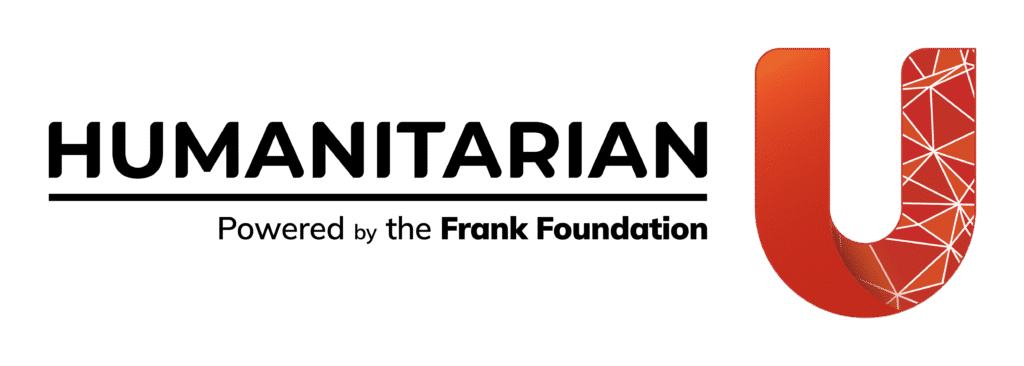I think back to the first Humanitarian Education and Training Conference in Geneva in 2011 and I am excited by how far we have come in the last seven years. That meeting, hosted by ELRHA, aimed to develop collaborations between humanitarian practitioners and academics. The meeting was partly inspired by the results of a study conducted by Peter Walker and Catherine Russ that involved over 1500 interviews with humanitarians and stakeholders. Their findings revealed a clear demand for professionalization across the humanitarian community. It was at that meeting that we all agreed on the CBHA Humanitarian Competency Framework and formalized the notion of professionalization of the humanitarian sector.
As an educator working at a university, teaching humanitarian studies, I was motivated to develop a humanitarian training curriculum that incorporated all the CBHA competencies. I integrated them into key topics such as “humanitarian principles and “context” and the technical sectors of humanitarian response. It was tricky to address competencies such as “managing oneself in a stressful environment” in a classroom-based setting so I developed a simulation exercise where students were evaluated on their abilities in realistic scenarios.
I had a lot of interest from students – not only from within the university but also those working in humanitarian organizations and even the private sector. I thought it would be wonderful to disseminate the content to others working around the world who couldn’t necessarily access or afford university in North America. And so I started Humanitarian U. I received a grant from Grand Challenges Canada to develop an online Program that combined academic rigor, evidence-based practice, standardized learning objectives, CBHA competencies and core humanitarian content. To have recognition of competency, learners had to pass assessments. This program is now hosted by Disaster Ready and HU is able to issue badges through HPass.
I was interested to know if HU’s online training had any impact – not only for learners but for beneficiaries. But how does one measure the impact of competency-based training in terms of better programs, individuals affected – or even lives saved? We worked with the Humanitarian Leadership Academy for two years to figure this out. In the end, beneficiaries reported that their programs were better, that their voices were better heard and that relationships, communication and ultimately the services they received were improved. The full report will be released in early September 2018.
World Humanitarian Day 2018 is just around the corner on August 19th. In light of the increasing number of emergencies and humanitarian needs around the globe we all know that there will be more of a demand for a humanitarian workforce. This workforce can’t be ad hoc. We need to continue on our path to professionalization through training and certification. I find it so amazing that finally there is some traction by the organizations who have been involved in professionalization and training and who now also endorse certification. HU is one of the organizations involved in the HPass pilot to recognize and eventually accredit training providers that meet learning and assessment standards – which came from the meeting back in 2011 that I referred to at the beginning of this blog.
“Certification” is becoming an accepted term in the humanitarian space. Rather than excluding people or potentially blocking them from taking part in humanitarian efforts, I see it as a formal recognition of competency and experience. It builds your credentials and sets you apart from others. It positively impacts your reputation, credibility and confidence. It shows your commitment to professional development and to professionalization of the humanitarian workforce. I look forward to the next ten years – as humanitarian response continues to improve. Maybe one day we will see it as a recognized profession.
Kirsten Johnson MD, MPH
Kirsten.johnson@humanitarianu.com

